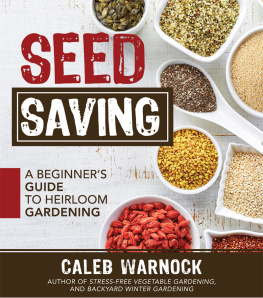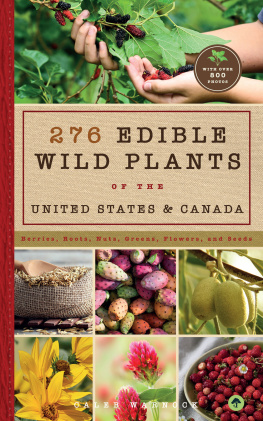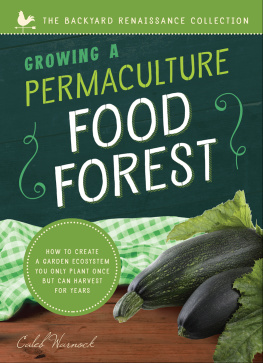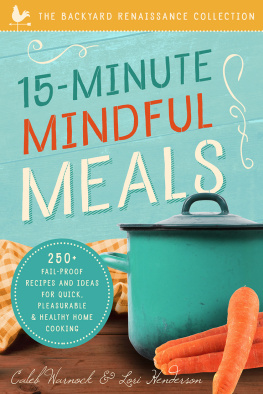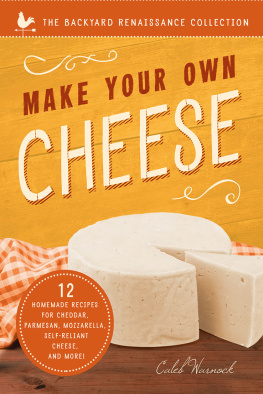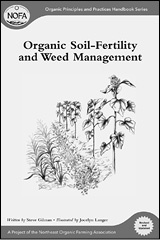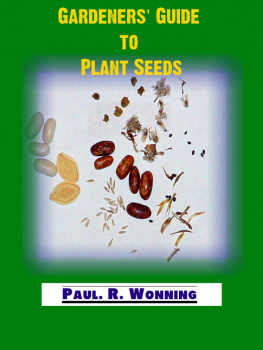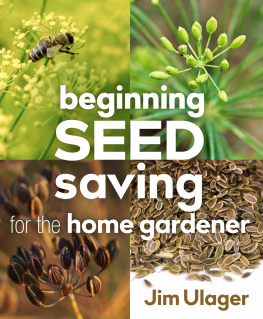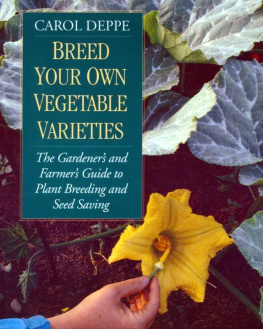Caleb Warnock - Seed Saving
Here you can read online Caleb Warnock - Seed Saving full text of the book (entire story) in english for free. Download pdf and epub, get meaning, cover and reviews about this ebook. year: 2017, publisher: Cedar Fort Publishing, genre: Religion. Description of the work, (preface) as well as reviews are available. Best literature library LitArk.com created for fans of good reading and offers a wide selection of genres:
Romance novel
Science fiction
Adventure
Detective
Science
History
Home and family
Prose
Art
Politics
Computer
Non-fiction
Religion
Business
Children
Humor
Choose a favorite category and find really read worthwhile books. Enjoy immersion in the world of imagination, feel the emotions of the characters or learn something new for yourself, make an fascinating discovery.
- Book:Seed Saving
- Author:
- Publisher:Cedar Fort Publishing
- Genre:
- Year:2017
- Rating:4 / 5
- Favourites:Add to favourites
- Your mark:
- 80
- 1
- 2
- 3
- 4
- 5
Seed Saving: summary, description and annotation
We offer to read an annotation, description, summary or preface (depends on what the author of the book "Seed Saving" wrote himself). If you haven't found the necessary information about the book — write in the comments, we will try to find it.
Seed Saving — read online for free the complete book (whole text) full work
Below is the text of the book, divided by pages. System saving the place of the last page read, allows you to conveniently read the book "Seed Saving" online for free, without having to search again every time where you left off. Put a bookmark, and you can go to the page where you finished reading at any time.
Font size:
Interval:
Bookmark:

2017 Caleb Warnock
All rights reserved.
The views expressed within this work are the sole responsibility of the author and do not necessarily reflect the position of Cedar Fort, Inc., or any other entity.
No part of this book may be reproduced in any form whatsoever, whether by graphic, visual, electronic, film, microfilm, tape recording, or any other means, without prior written permission of the publisher, except in the case of brief passages embodied in critical reviews and articles.
ISBN 13: 978-1-4621-2758-0
Published by Hobble Creek Press, an imprint of Cedar Fort, Inc.
2373 W. 700 S., Springville, UT 84663
Distributed by Cedar Fort, Inc., www.cedarfort.com
LIBRARY OF CONGRESS CATALOGING-IN-PUBLICATION DATA
Names: Warnock, Caleb (Caleb J.), 1973- author.
Title: Seed saving / Caleb Warnock.
Description: Springville, Utah : Hobble Creek Press, [2016] | Includes bibliographical references and index.
Identifiers: LCCN 2016043724 (print) | LCCN 2016046045 (ebook) | ISBN 9781462113422 (layflat binding : alk. paper) | ISBN 9781462127580 (epub, pdf, mobi)
Subjects: LCSH: Seeds--Harvesting. | Vegetables--Seeds. | Fruit--Seeds. | Germplasm resources, Plant--Collection and preservation.
Classification: LCC SB118.32 .W37 2016 (print) | LCC SB118.32 (ebook) | DDC 631.5/21--dc23
LC record available at https://lccn.loc.gov/2016043724
Cover and page design by M. Shaun McMurdie
Cover design 2017 by Cedar Fort, Inc.
Edited by Jennifer Johnson
CONTENTS

WHY CARROTS AND TOMATOES DONT GROW AS WEEDS
T he goal of all seed saving is to prevent seeds from becoming wild.
Because I own an heirloom seed company, I often get asked this question: So if I want to save seeds from my garden, all I have to do is plant the seeds you sell and save the seeds from those plants, right? If only Mother Nature was that simple and generous! The truth is, throughout the history of the world, people have had to work for food.
Some vegetables are easy to save seeds from. Lettuce and beans are painless. Most vegetables are not. This is because wild pollen is always dominant. If this were not true, weeds would be vegetables and all our lives would be much, much easier. No one would go hungryever. Its nice to imagine a world where patches of weeds are gardens of vegetables. But that world does not exist. (Some weeds are edible, but none of them spontaneously produce carrots, for example.) Every single heirloom food we eat was carefully selected, through natural seed saving methods, to become what it is today. (Hybrid and genetically modified plants, which existed commercially for the first time beginning in the 1920s, have been manipulated in laboratories and with unnatural pollination techniques. More on that later.)
The problem with wild seeds is that they produce unpredictable or inedible food. Let me give you examples of both.
THE PROBLEM OF UNPREDICTABLE SQUASH
Many gardeners have had volunteer squash appear in their gardens. This happens when a squash is left in the garden and rots. The seeds are often scattered by voles, mice, raccoons, birds, or other creatures. The next year, some of the seeds sprout. But because of wild pollination (also called wild or promiscuous crossing of pollen), the squash they produce look nothing like any of the squash you grew the year before. They have completely differentand unpredictablesizes, shapes, colors, flavors, and growing habits. These new wild squash are called F1 in the world of genetics. If some of the seeds inside these F1 squash are left in the garden to grow the next year (or purposefully saved by the gardener), the F2 generation will also be very different from the F1 generation or the original plants. The F3 generation will continue this trend, as will the F4 generation, and so on. If a large enough population of seeds remains from year to year, the traits of these squash will remain forever unpredictablewith one exception. Because of inbreeding, the squash are likely to get smaller and smaller over the years. This is because, in nature, the squashs only job is to produce seeds. In the wild, Mother Nature does not waste energy producing thick, delicious squash for eating if she can produce small, thin squash with viable seeds. The only way to have what science calls true seedmeaning seeds that will grow squash that predictably resemble the parentsis to carefully control the pollination, making sure only like squash can pollinate like squash. For example, a dark green zucchini can only pollinate other dark green zucchinis if you want the seeds to produce true dark green zucchinis. If they are pollinated by any other kind of zucchini or any other kind of squash in the same species, the results will be wild squash with unpredictable traits. They might be any color, flavor, size, and shapeand likely will be.
INEDIBLE CARROTS
In my garden, as I write this, I am growing several thousand carrots. We are self-reliant when it comes to carrots, meaning we dont ever buy them from the grocery store because we grow all we need for the year. The carrots I am growing are a mix of colorsblack, orange, red, purple, yellow, and white. Every carrot is heirloom. We dont grow any hybrids or genetically modified ( GMO ) foods. Orange carrots, which are so popular today, were one of the last colors of carrots to be naturally created, through seed breeding in the 1600s by our ancestors. Natural, wild carrots are white. As hard as I try to prevent wild carrots from growing on our one-and-a-half acres, they return each year. They are noxious weedsinvasive, hardy, and vigorous. They are impossible to get rid of because they are biennial and hard to spot until they go to seed in their second year of life. And even if I could get them off our property, they grow everywhere in our statein all fifty states, in fact.
And therein lies the problem, the eternal tension and drama that seed saversboth backyard and commercialface every day. Carrots are one of the few vegetables in the garden whose pollen is spread both by wind and by insects, such as bees, flies, wasps, and moths. Controlling the pollen of carrot flowers requires literally controlling the wind.
Why control the pollen? Because wild carrots are inedible. They have a bitter, fibrous white root that is shriveled and impossible to chew, compared to the tender, sweet, healthy, and delicious roots of cultivated carrots.
Yet they are genetically the same plants.
And because they are the same plants, they easily and eagerly sexually reproduce. If the wind, or a bee, carries the pollen of a wild carrot to a domesticated carrot, literally centuries of breeding work are instantly undone. Any seeds or carrots produced from this pollination will forever be wild and unstable.
The world desperately needs serious garden seed savers, because the knowledge of how to grow our own vegetable seeds in the backyard garden is almost lost from the world.
The world desperately needs serious garden seed savers, because the knowledge of how to grow our own vegetable seeds in the backyard garden is almost lost from the world. Very few people know how to do it successfully over years. Very few people indeed have deep experience. Yet without backyard seed savers and heirloom-only seed companies like mine, our entire seed supply will be corporate-owned and corporate-controlled for the first time in the history of the world. Read that twice.
Font size:
Interval:
Bookmark:
Similar books «Seed Saving»
Look at similar books to Seed Saving. We have selected literature similar in name and meaning in the hope of providing readers with more options to find new, interesting, not yet read works.
Discussion, reviews of the book Seed Saving and just readers' own opinions. Leave your comments, write what you think about the work, its meaning or the main characters. Specify what exactly you liked and what you didn't like, and why you think so.

